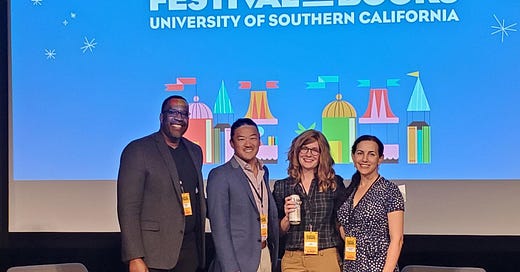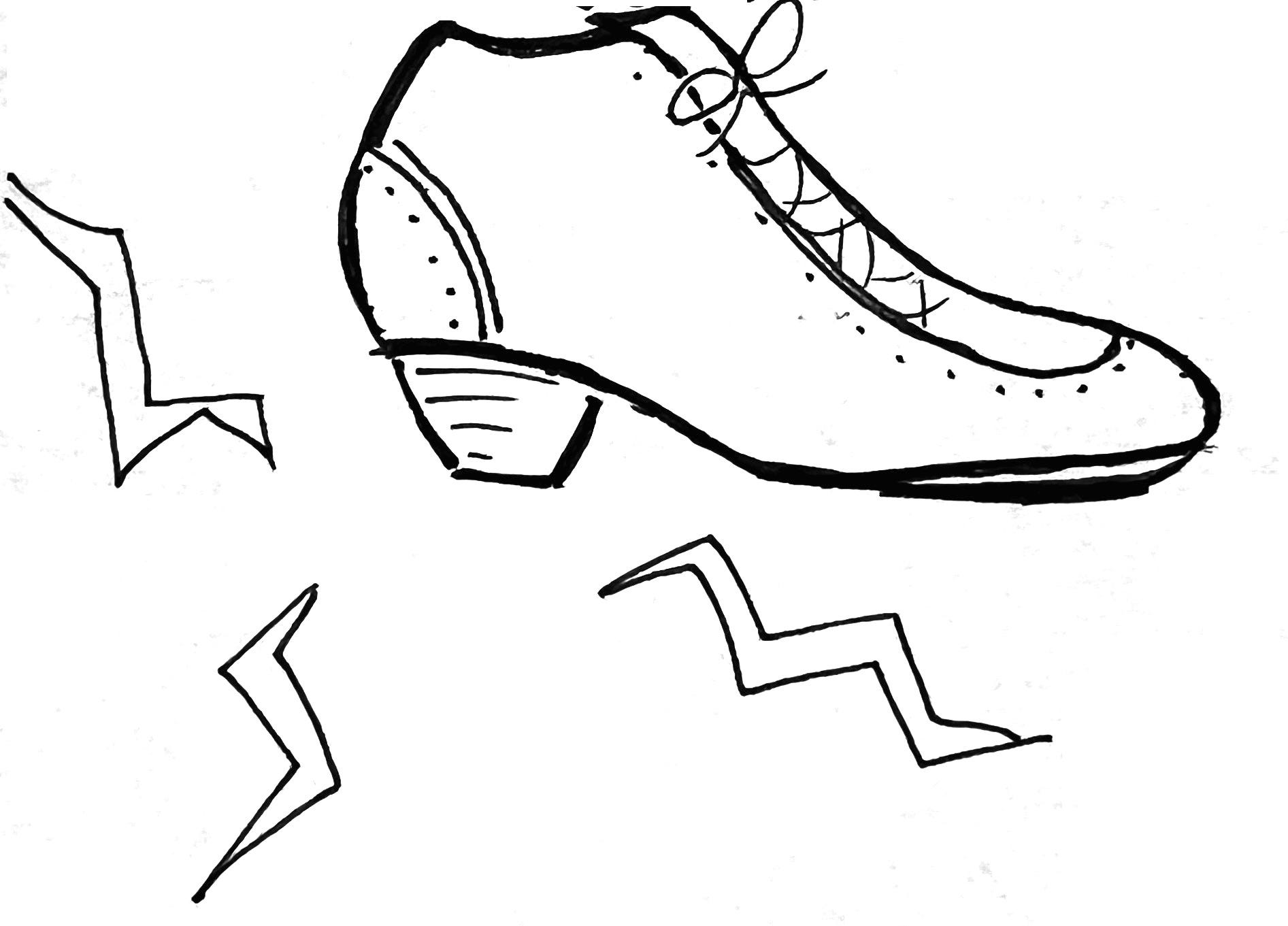Hey Friends,
Sorry about the silence these past weeks. I’ve been fighting the end boss in a decade-long imprisonment on the outer banks of hell. I’m better than ok and will talk about it some day soon. But not today. Today we’re going to a book fair!
The LA Times Festival of Books hosted by USC happened a few weekends ago. I was a panelist for a session on Resilience in Gen Z; we were ironically served canned water by a company called Liquid Death, which I’m still laughing about. I learned a lot from my fellow panelists about how resilience is about becoming soft and strong, not just disconnecting from your emotional experience to tough your way through a traumatizing world. I learned a lot from the audience’s passionate comments about resilience not remaining an individual-centric goal but also a necessary capacity to engage social justice for the greater good. And I learned the most from a half-asleep Noah before I even drove to campus.
Here is the panel of human people in descending height:
I was in my room in my fancy pants tying on my one pair of dress shoes. I was trying not to wake him early on a Sunday morning. I hate professional clothes and promised myself as a little girl that I would never have a job that required me to wear pantyhose or shoulder pads (professional-wear in the ‘80s in the Pittsburgh suburbs.) Mainly this was because they constrict you from doing cartwheels at recess, but also because they signaled the kind of desk jobs that led to lives of quiet desperation. So, I have one pair of dress shoes that now look like they’ve been weed-whacked and fed through a wood chipper. Both block heels are missing the bottom soles that keep you from slipping and that deaden the sound when you walk on linoleum.
“Hey, Noah, are you awake?” I whispered to him at his bedroom door.
He rolled over and groaned.
“Yeah, those are the loudest shoes in history.”
“Oh, haha, sorry,” I said. “I’m leaving in a second and wanted to say bye, but also, do you know that I’m going to be talking about the mental health of people your age?”
“Congratulations,” he said pulling the blanket over his head.
“Do you know what ‘resilience’ is?” I asked.
“No.”
“Ok, how would you describe the mental health of your peers?” I rephrased.
“What?” he asked irritated. “I don’t know. I don’t even know what that means. No one talks like that. And no one talks about ‘their mental health.’”
“It’s like how you’re feeling, how you’re really doing,” I said.
“That’s how adults talk. You can just tell how people are doing—if they’re sad or whatever,” he said.
“Got it, makes sense. So what would you say if I asked YOU how your mental health is, how you’re doing?” I said.
“I’D SAY, ‘BAD,’ BECAUSE IT’S EARLY AND THOSE ARE THE LOUDEST SHOES IN HISTORY!”
…
We laughed, and then I drove to campus in my chewed up loud shoes. And thought the whole drive through downtown about how we’re talking about “the youth mental health crisis” without them in the room. We’re using language and frames of reference that they don’t use and thus can’t really “hear” what they’re telling us because it’s a different language and tone of voice. And we’re not aware of how our own mental health and the formation of our landscape of ideas about it are entering into our strategies of support.
I’m more convinced than ever that Gen Z, “the youth” and whomever else we’re grouping together and trying to help are whole and powerful agents capable of understanding their experience and making decisions towards their own health and happiness. Those of us trying to help are co-pilots helping to facilitate their process. That means slowing down to get in the dirt of daily experience with them, listening hard to what their words, silences, hoodies and memes are expressing. And messaging unconditional positive regard to them over the long haul as they navigate a fast and fraught social landscape with challenges older generations never faced. Authentic language and strategy will not be taught to them but sought out by them and created from their unique experiences. We’re not structured to help in these ways organizationally. So we’re going to have to re-structure or go rogue and dare the structure to censure us. This might look like a sit-in where we literally sit our fancy pants butts down and become bumps on a log next to them and show them with our time and attention that we are with and for them without an agenda. Maybe that means our reports don’t get written and curriculums don’t get designed. Maybe we have to answer to bosses and boards, but at least we’re doing the thing that works.
I’m down for re-structuring or getting a talking to when necessary.
Also down for a new pair of shoes.
Next letter I’ll tell you about the anti-guru moves we can make at events like this if we’re “on stage” to use our power to connect others to their own power rather than using ours to position ourselves as authorities in their lives that only they can be.
Sending cans of Liquid Death,
Cat




